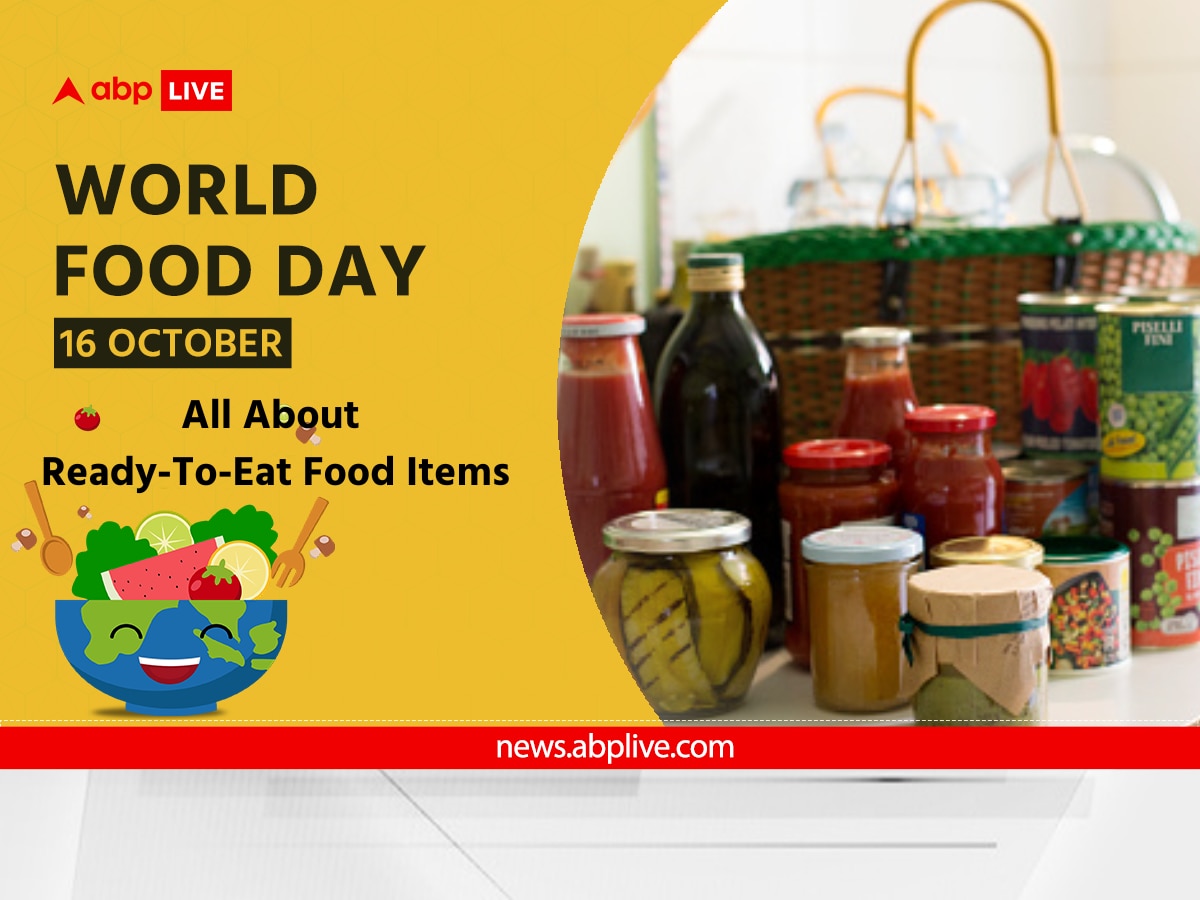In the whirlwind of contemporary living, ready-to-eat foods emerge as a symbol of simplicity, transforming the culinary landscape. Whether for a busy professional, a time-strapped parent, or a member of the international Indian diaspora, the demand for ready-to-eat foods is a resounding testament to their role as life simplifies.
Talking about convenience, Bimal Thakkar, who is the CMD of ADF Foods said, "Ready-to-eat foods redefine convenience, offering a shortcut to flavourful delight without compromising on authenticity. These products infuse the authenticity of taste into our daily lives. In a fast-paced world, where time is paramount, these culinary solutions provide a swift and convenient answer to the perpetual challenge of balancing work and sustenance. Ready-to-eat foods represent a smart and streamlined approach to nourishment that aligns with the pace and demands of modern professional life."
But, are they healthy? What are the things we should ensure before purchasing them? Read further to know:
Are Ready-to-eat Food Items As Healthy As Their Claims Mention?
Nowadays, people prefer consuming packaged food items which are either ready to eat or ready to cook. Those who live alone or work till late at night or those who don’t like cooking much, all prefer to have such packaged food items. Every food product comes in packaged form starting from ginger garlic paste, tomato puree, dosa or idli batter to rajmah masala or shahi paneer masala. However, they have a lot many downsides as listed by Dietician Garima Goyal:
1. Nutrient losses: Since the food item that has to be packaged is supposed to have a long shelf life, they are usually highly processed and subjected to high heat treatment, usually higher than normal home cooking. When the food item is subjected to high temperature, it loses its nutrients such as vitamins and minerals.
2. Loaded with saturated fats: Firstly, we aren’t sure what type of oil is used to prepare such foods and the claims can be false too. Secondly, for bulk and inexpensive cooking, food manufacturers usually use hydrogenated or partially hydrogenated fats to cook such packaged food items. These types of oils are loaded with saturated fats, a highly undesirable type of fat as it increases the risk of various chronic diseases such as cardiovascular diseases or various types of cancers if consumed in the long term and also predisposes a person to gain weight and become obese.
3. Full of chemical additives and preservatives: In order to increase the shelf life of such pre-packaged food, a lot of chemical additives such as preservatives namely benzoic acid, calcium sorbate, potassium nitrate etc., colouring or flavouring agents etc. are added to them. Artificial colours like tartrazine (E102), Allura red (E129), carmoisine (E122), etc. are regularly used to impart endearing colours to ready-to-eat foods as the excess processing and addition of preservatives destroy the natural colour of the food being cooked and packed. Certain artificial flavours, like MSG (monosodium glutamate), also known colloquially as Ajinomoto, are used to enhance taste. MSG may cause allergic reactions in some people. Artificial sweeteners like maltodextrin, sucralose, and acesulfame K are used in sweet, ready-to-eat foods. And this is evidently true that long-term consumption of such chemical compounds is not good for our health.
4. Full of sodium: For enhanced taste as well as as a preservation technique, a lot of salt is added to such ready-to-eat products and so this raises the sodium content of the dish. Regular consumption of such foods raises the risk of hypertension or other heart-related diseases.
5. Poor satiety value: Processed foods are easier to digest than unprocessed, whole foods. That means our bodies burn less energy in digesting them. It’s estimated we burn half as many calories digesting processed foods compared to unprocessed foods. This fact combined with the calorie density of processed foods in general can make it easy to pack on the calories.
Things To Keep In Mind Before Consuming Ready-to-eat Food Items:
So if you wish to consume these ready-to-eat foods, Garima mentioned certain things that are to be carefully observed:
- Read the food labels properly and avoid those foods that have high amounts of sugar or sodium as the excess consumption of both of these is detrimental to health.
- Look at the calories provided per serving as you will definitely come to know that the calories are high and the product is not as healthy as you thought it to be.
- Always carefully observe the expiry date of the product.
- If you consume any of such packaged food that is ready-to-eat, consume all the contents in one go and if it is still left, it is best to discard it as there are high chances of bacterial and mould growth over such foods causing food poisoning or dysentery.
- You should also read the ingredients list provided. The one mentioned at the top of the list is usually present in the highest amount in the food. And the one at the bottom is present in the least amount. So, if a food item has carbohydrates or fats at the top, it means you should consume it in moderation.
- Reading labels is also good as it gives you information about any foods that can be a possible cause of an allergic reaction.
What Are The Potential Harmful Effects Of Ready-to-eat Food Items?
In this regard, Dietician Umang Malhotra listed the following:
- Many packaged foods have sugars that are not clearly labelled, leading to a higher consumption of sugar than what may be intended. This overconsumption of sugar can result in weight gain, obesity, and eventually, diabetes.
- These products often contain trans fats, saturated fats, and excessive amounts of unhealthy cooking oils which pose a risk to cardiovascular health. Such elevated levels of unhealthy fats have been linked to an increased risk of heart disease.


